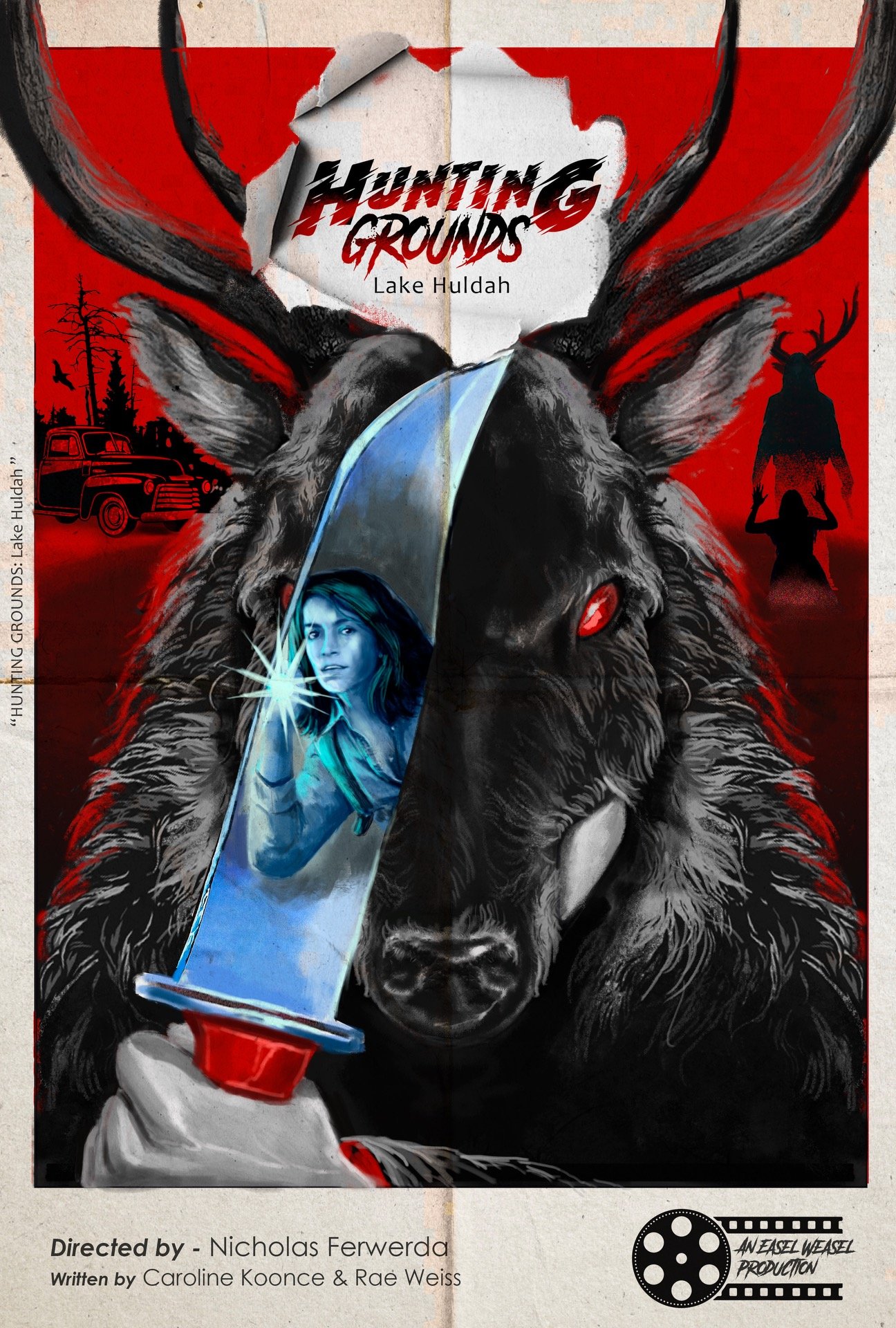Hunting Grounds - An Anthology Horror/Mystery Audio Drama
SEASON ONE: An abandoned summer camp in a secluded Adirondack resort town. Three dead teenagers and one on death’s door. Two survivors. A blackmailed Chicago homicide detective and a past Final Girl on the case. A town determined to hide the truth of what happened that night. A ticking clock. And a killer on the loose, ready to make sure no one escapes this time around.
This is Hunting Grounds.
Directed & Produced by Nick Ferwerda
Story by Caroline Koonce
Screenplay by Caroline Koonce and Rae Weiss
Additional Writing by Joseph Brentjens and Conor Reid
Cast:
Diana Helen Kennedy as Det. Sybil Crane
Carey Bibb as Julie Bradford
Jeffery Allen Sneed as Dean Hardesty
Lauren Lindsay as Heather Thompson
Marc Rico Ludwig as Adam Prescott
Nathan Veach as Wyatt Ripley
Mateo Perodi as Terry LaFontaine
Mark LaPointe as Sheriff Wayne Cotton
Sarah Smithton as Det. Laura Polk
Emma Sherr-Ziarko as Maeve Bradford
Joel Davila as Jonathan Snell
Sarah Adler as Shelby Ripley
Jess Blackwell as Rebecca Palmer
We started Hunting Grounds, like all good things, with a question. What happens after the slasher movie?
It’s always wham, bam, the killer’s maybe-dead and we depart on a victorious shot of our bloodied final girl - but the aftermath isn’t that simple.
Hunting Grounds is a continuation and an exploration of the storylines we don’t always think about in traditional slashers. Those teens that died at that house party, or at their prom, or in that summer camp massacre? They don’t exist just for cheap scares or laughs. Their deaths are real, and they cause a ripple effect that lasts much longer than that final shot. Their story is one of grief, of injustice, of willful ignorance, and of cruelty.
They leave behind family, friends, and loved ones. They have funerals and memorials. They weren’t just tropes - they were complex & fully realized people, with their own problems and struggles outside of this tragedy. They’ll never escape their hometown. They’ll never go to college. They’ll never get to grow beyond who they were at eighteen. Their daughter will never have a mother again. How can their community come together and heal after this kind of sorrow?
If you looked at horror movie victims in any other setting, would you ask yourself those questions? Would you see yourself in their shoes? Would you truly feel empathy for them? Or would you dehumanize them for their mistakes? Would you rate and compare their deaths? Would you discard them without another thought?
We also look at the victims’ and survivors’ lives leading up to the killings - how did they interact with each other, and with the world? How does that inform what happened that night? What did they do in their spare time? Were they good students? What did they care about? Who did they hate? Did they think they had a future? What would their life have looked like?
It’s the little things that make up the sum of a person, and all of those things affect the murders & the following case in very tangible ways. This is the other way we give the traditional slasher victims the respect they deserve - as frequently we only see a few snapshots of their life before their gruesome death.
The last thing Hunting Grounds covers is something we see slightly more often - what does a homicide investigation for a horror movie look like? How could you even begin to put the pieces together for this kind of brutality? What kind of person would it take to pursue these slasher/spree killers for a living? What would her work look like? How would that affect her mentally? How is she going to untangle the web of errors and lies at the center of this case? And how would a town, desperate to maintain an iron grip on its image and economy, react to an outsider coming in and digging up secrets they’d much rather stay hidden?
